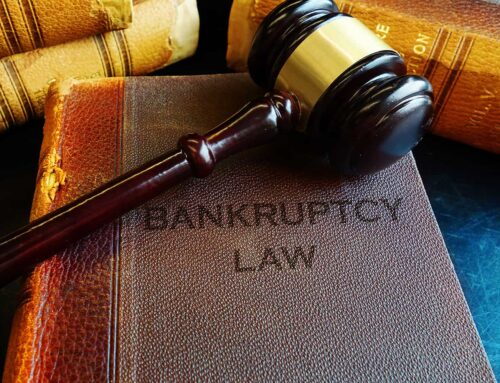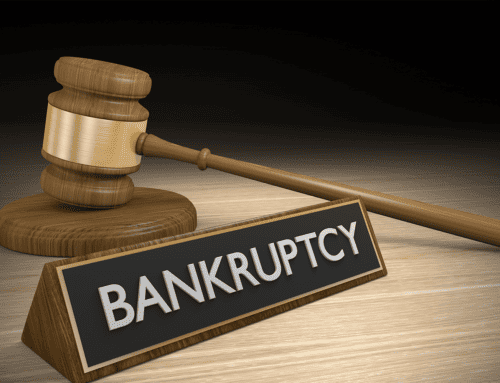With a volatile stock market, rising prices, and dire predictions of a recession, it is no wonder the thoughts of beleaguered debtors turn to bankruptcy. Most people will do anything they can to avoid this legal procedure and pay their debts, but bankruptcy laws exist to provide a fair and equitable process for individuals whose finances leave no other choice. Whether you have a pile of bills you cannot pay, or you are a creditor owed money, it is important to understand exactly what protections bankruptcy offers.
Bankruptcy Laws Go Back to the Founding of Our Country
Even before the Revolutionary War, the original colonies had laws in place that covered debts and repayment. Most of these laws favored creditors and threatened debtors who failed to pay their obligations with prison or seizure of their properties. In 1789, the Constitution of the United States gave Congress power to enact laws governing bankruptcy, but it took almost another decade for Congress to pass the Bankruptcy Act of 1800. Due to some abuses of the law, legislators repealed it three years later.
Congress enacted and repealed bankruptcy laws several more times during the 1800s. During these periods when there were no federal bankruptcy laws in effect, many states had their own laws governing the process. Finally, Congress passed the Bankruptcy Act of 1898, which set up uniform rules governing the bankruptcy process throughout the nation. Although Congress modified and revised these laws over the years, federal bankruptcy law became a permanent part of our legal system. Even several presidents, including Abraham Lincoln and Ulysses S. Grant filed for bankruptcy under the nation’s laws.
Federal Bankruptcy Law Has Supremacy Over State Laws
The federal court system handles all bankruptcy cases according to Title 11 of the United States Code. Article VI, Clause 2 of the U.S. Constitution establishes that federal law takes precedence over the laws of any state. This becomes vital when a debtor files for bankruptcy in federal court because this process stays or halts any judgments or suits that a creditor may have won against the filer in a state court.
Creditors Must Obey the Court Order
Known as the automatic stay, this federal court order is at the heart of the protection bankruptcy offers the debtor. It goes into effect the moment the petitioner files a claim and lasts until the court finalizes or dismisses the bankruptcy, or a creditor files a Motion for Relief from the Automatic Stay. The court mails a notice of the automatic stay to all creditors, attorneys, and other parties affected by it. Creditors and their agents, such as collection firms or lawyers, must abide by the automatic stay or risk the court holding them in contempt and subjecting them to fines and other penalties.
Creditors Must Cease All Collection Attempts
In a sense, the automatic stay is almost like hitting the pause button in the middle of a fast-moving action movie. All activity ceases, and silence reigns. Once creditors receive notice of the debtor’s bankruptcy filing, they must immediately stop all collection of phone calls and texts, emails, letters, and contacts over social media.
In addition, all legal actions come to a halt. This not only includes home foreclosures, wage garnishments, and car repossessions but also lawsuits, court judgments, and even utility shutoffs for a limited time.
The Automatic Stay Has Limitations
Bankruptcy and the automatic stay do not grant relief for every debt. The most notable exceptions are overdue child support or spousal support payments, some tax liabilities, fines from criminal convictions, and debts incurred after filing the bankruptcy petition.
Bankruptcy Laws Protect Fairness and Order
In our society, people often view bankruptcy in an unfavorable light, but it is an important process that often gives financially distressed individuals a chance to get their lives back on a productive path and become constructive citizens who make economic contributions to their communities. Bankruptcy proceedings include financial education requirements to help debtors gain insights and avoid problems in the future. Receiving a fresh start can give new hope and motivation to work harder, avoid future pitfalls, and enjoy freedom from financial worries.
In addition, bankruptcy provides an orderly process that treats creditors equally. Federal bankruptcy laws include forms for filing that must disclose all assets and liabilities in detail. The bankruptcy trustee carefully reviews and investigates all the circumstances of the bankruptcy.
An Experienced Attorney Can Demystify Bankruptcy Protection
If you are facing overwhelming financial challenges in this difficult economic environment, the Law Offices of Brent D. George can answer your bankruptcy questions and help sort out the options available for your situation. We have years of experience assisting clients in various circumstances and can make sure you understand how bankruptcy or any other alternatives can offer you protection while you get your financial life back in order. Call us today at (805) 494-8400 to schedule a free consultation and experience relief from creditors.







